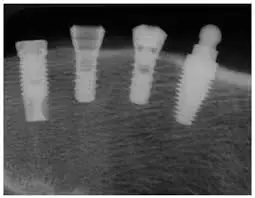- Home
- Medical news & Guidelines
- Anesthesiology
- Cardiology and CTVS
- Critical Care
- Dentistry
- Dermatology
- Diabetes and Endocrinology
- ENT
- Gastroenterology
- Medicine
- Nephrology
- Neurology
- Obstretics-Gynaecology
- Oncology
- Ophthalmology
- Orthopaedics
- Pediatrics-Neonatology
- Psychiatry
- Pulmonology
- Radiology
- Surgery
- Urology
- Laboratory Medicine
- Diet
- Nursing
- Paramedical
- Physiotherapy
- Health news
- Fact Check
- Bone Health Fact Check
- Brain Health Fact Check
- Cancer Related Fact Check
- Child Care Fact Check
- Dental and oral health fact check
- Diabetes and metabolic health fact check
- Diet and Nutrition Fact Check
- Eye and ENT Care Fact Check
- Fitness fact check
- Gut health fact check
- Heart health fact check
- Kidney health fact check
- Medical education fact check
- Men's health fact check
- Respiratory fact check
- Skin and hair care fact check
- Vaccine and Immunization fact check
- Women's health fact check
- AYUSH
- State News
- Andaman and Nicobar Islands
- Andhra Pradesh
- Arunachal Pradesh
- Assam
- Bihar
- Chandigarh
- Chattisgarh
- Dadra and Nagar Haveli
- Daman and Diu
- Delhi
- Goa
- Gujarat
- Haryana
- Himachal Pradesh
- Jammu & Kashmir
- Jharkhand
- Karnataka
- Kerala
- Ladakh
- Lakshadweep
- Madhya Pradesh
- Maharashtra
- Manipur
- Meghalaya
- Mizoram
- Nagaland
- Odisha
- Puducherry
- Punjab
- Rajasthan
- Sikkim
- Tamil Nadu
- Telangana
- Tripura
- Uttar Pradesh
- Uttrakhand
- West Bengal
- Medical Education
- Industry
Titanium implants associated with less pain than zirconium implants following periodontal or peri-implant probing: Study

Titanium implants are associated with less pain than zirconium implants following periodontal or peri-implant probing suggests a study published in the Clinical Oral Implant Research.
This study was designed to compare discomfort/pain after periodontal and peri-implant probing in patients with titanium compared with zirconium implants. One examiner recruited and examined 70 patients, each of whom had a dental implant with a contralateral tooth; 37 patients had titanium implants of various types and 33 patients had zirconium implants; one implant was analyzed for each patient. Periodontal and peri-implant probing pocket depth (PPD) and clinical attachment level (CAL) were assessed. Immediately after probing, patients rated their discomfort/pain with a visual analog scale (VAS). The emergence profiles of implant crowns were assessed on periapical radiographs of the implants.
Results: Seventy patients with a median age of 55 years (interquartile range [IQR]: 42–65 years), including 43 females and 16 current smokers, were examined. The mean PPD and bleeding on probing (BOP) were higher around implants than around teeth (p < .001). CAL and suppuration were well-balanced between implants and teeth. Peri-implant probing caused significantly more discomfort/pain than periodontal probing [median VAS score: 12.5 (IQR 4–22) vs. 9 (2–15); p < .001]. Logistic regression revealed that discomfort/pain after peri-implant probing was less intense in patients who had taken analgesic medication (p = .021) and around titanium implants (p = .037). Peri-implant probing caused significantly more discomfort/pain than periodontal probing. Patients who had taken analgesic medication experienced less discomfort and pain with peri-implant probing than those who had not; furthermore, titanium implants were associated with less pain than zirconium implants.
Reference:
Bussmeyer, F., Saminsky, M., & Eickholz, P. (2024). Discomfort/pain due to peri-implant probing at titanium and zirconium implants: A cross-sectional study. Clinical Oral Implants Research, 00, 1–10. https://doi.org/10.1111/clr.14298
Dr. Shravani Dali has completed her BDS from Pravara institute of medical sciences, loni. Following which she extensively worked in the healthcare sector for 2+ years. She has been actively involved in writing blogs in field of health and wellness. Currently she is pursuing her Masters of public health-health administration from Tata institute of social sciences. She can be contacted at editorial@medicaldialogues.in.
Dr Kamal Kant Kohli-MBBS, DTCD- a chest specialist with more than 30 years of practice and a flair for writing clinical articles, Dr Kamal Kant Kohli joined Medical Dialogues as a Chief Editor of Medical News. Besides writing articles, as an editor, he proofreads and verifies all the medical content published on Medical Dialogues including those coming from journals, studies,medical conferences,guidelines etc. Email: drkohli@medicaldialogues.in. Contact no. 011-43720751


